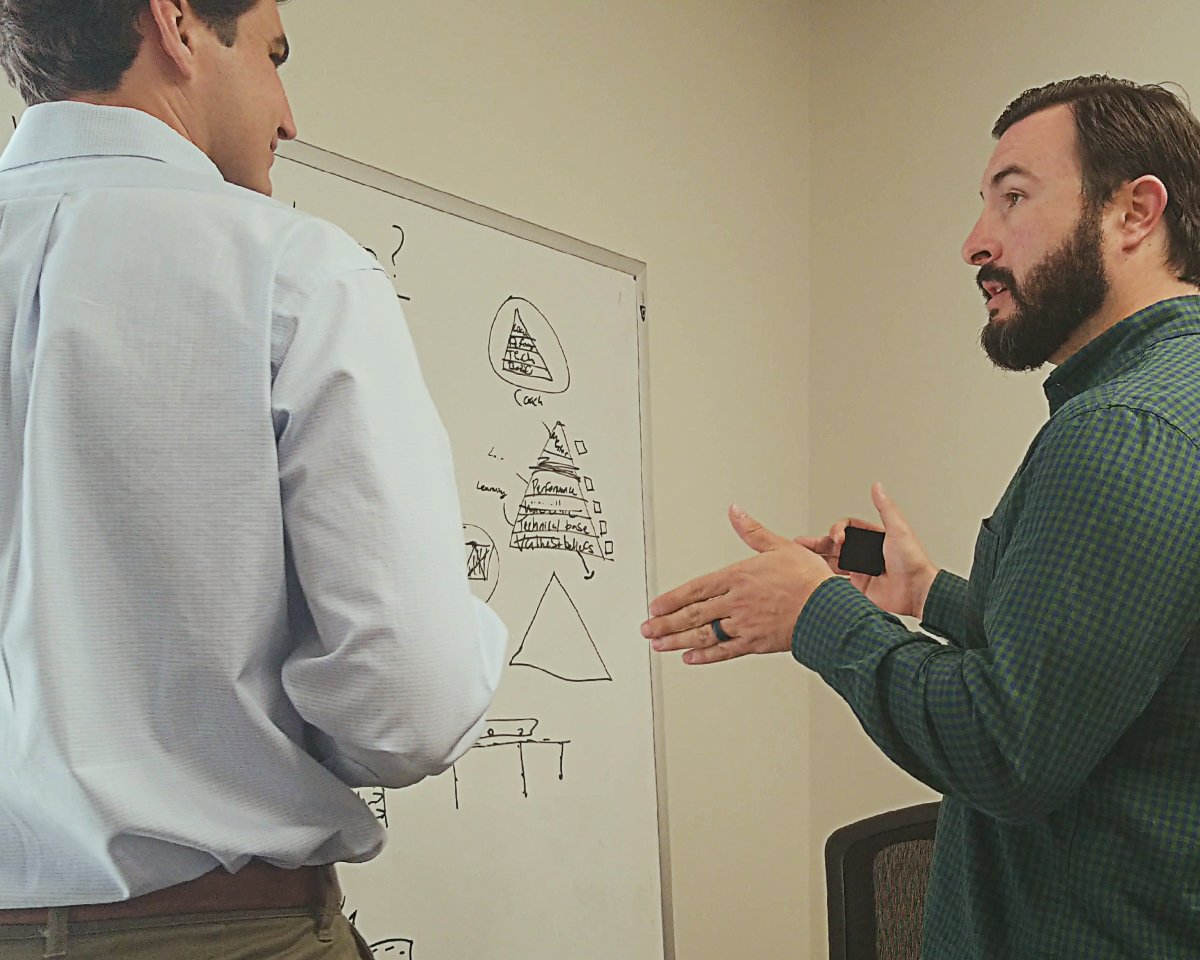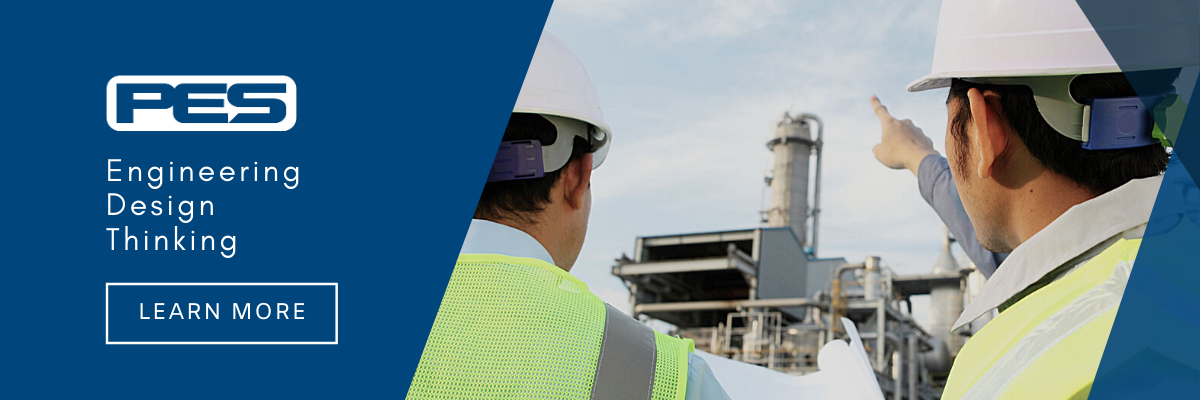6 min read
10 Contrary Values and Beliefs Professional Engineers are Up Against
Blaine LaFleur
Jul 13, 2017

This article will outline 10 contrary values and beliefs you are up against on your course to staying in the learning mode, as well as give examples of the kind of values that could underwrite high achievement.
"Organizations fail today because they cannot rid themselves of the values and beliefs that made them successful but which no longer have the relevance on the changed playing field." -Lee Thayer
I couldn't help but relate this above quote to the way conventional engineering is performed. If I were to rewrite the quote I would write it like this:
"Engineers fail today because they cannot rid themselves of the past experiences and designs that made them successful but which no longer have relevance on the changed playing field."
As rookie engineers fresh out of school we pretty much know nothing and are willing to learn everything.
Somewhere along the way we have an engineering breakthrough, which helps define our career, but we forget how to learn. This engineering breakthrough, while great for your confidence, has the potential to stunt your career by changing your life's course from the "learning mode" path to the "knowing mode" path.
Staying on the learning mode path as an engineer is one of the hardest things you will face in your career. All of your past experiences and engineering breakthroughs will get in your way. Here's what you are up against. An thus what you have to change if you need certain values and beliefs working for you rather than against you.
The contrary Values and Beliefs you are up against
1- Work is not very highly valued these days.
But the values that are not put into one's work cannot appear in the products or the services you provide. What people don't value about their work they do devalues the products of their work.
Your engineering and designs are a reflection of the values you have as a person. Poor values = poor designs. Start by creating the right values then let them come out in your work.
2- Training people to say "Have a nice day" is not the same thing as equipping them to produce a nice day for customers and others.
Saying, "Have a miserable day," isn't going to make it happen, unless it has already been made so, as for example by the perfunctory treatment you get from most flight attendants, retail clerks, and those who anonymously aim their road rage at you.
Training engineers to calculate von Mises through an FEA is not the same as equipping them to produce a superb product that is going to revolutionize the market. Train them how to think, be an exemplar of the learning mode. Give them something that is going to change their lives not their material strength.
3- people should be rewarded for how well they do what they do, not for the position in an organization.
An old Hungarian proverb has it that people should be rewarded for how well they do what they do, not for the position in an organization. We value our celebrities more than our plumbers. When everyone becomes a talk-show host (or devotee), who will fix the plumbing?
Professional Engineers are know as being the behind the scene guys who produce the products the sales team sold prior to it even being invented. This age old tussle usually gives engineers a bad reputation with the sales team, our engineering world "celebrities". Here is an idea, try displacing some of your introverted engineering habits for some extroverted sales habits and become the engineer that can not only make the product but can sell it as well.
4- We are greatly concerned with our rights and our entitlements.
But our duties and responsibilities are rarely mentioned.
When we signed up to be engineers, where did it say we didn't need to know how to physically weld, or be able to machine and assemble our own tools.
Who gave you the right to skip the foundation of our work?
Get your hands dirty, build a relationship with the shop foreman. Learn how to communicate with people other than just engineers. Who knows, you may actually learn something about responsibility.
5- We espouse certain values, but live by very different values.
People will be as hypocritical with customers and fellow-workers as they are in their private lives.
Want to know what values people see in you? Watch what you do in your private life. It comes out in your work whether you like it or not.
6- Great performance is wholly incompatible with easy hypocrisy.
The logic is inescapable.
When is the last time you truly had a great performance? Are you still riding the perceived momentum you built on a project 5 years ago?
7- They level of character you and your people do not routinely exhibit
(Basic values are consistent because they are habits) can be no part of the assessment that customers, suppliers, or investors make of you.
Routinely exhibit! Your character has to be a habit. It can't be something that you learn in on board training. It started when you were born.
8- You cannot perform at a level of character you do not have.
Want to change your character? Change your habits.
Want to change your habits? Change your thinking.
Get away form your past experiences and learn something new. You may want to start with mimicking someone who has been there before. One reference we use is the Stoics.
9- People who can't give to the organization more than they expect from it are deadbeats, and need to be dealt with accordingly.
This may be easier to comprehend written for engineers:
"Engineers who can't give to the design more than they expect from it are deadbeats, and need to be dealt with accordingly."
10- What you don't value won't value you.
So what do you value?
What they might have to be
Well, you get the point.
What follows is an example of the kind of values and beliefs that can underwrite real achievement. They work only if they are a part of who you and your people are. These are unlikely to be your present everyday, always practiced values and beliefs to aspire to if you intend to pursue great achievement.
Here is a possible list of values and beliefs that can make a difference (because they have made a difference):
We believe that good work, superbly done, is the richest source of human dignity and quality of life.
-
Can you imagine ... what the performance of an organization would be like if most of the people in it were actually driven by that belief?
-
Can you imagine ... what products and inventions could be created if most engineers were actually driven by that belief?
We believe that the world passes by those who do not change with it.
-
Isn't it the case that people who stop learning, and thus changing, actually lose ground simply because the world is changing around them? Can you imagine ... that world trying to keep pace with people who are learning everyday?
-
Can you imagine ... a world of engineers who embraced and actually initiated change?
We believe we should never belittle ourselves by setting mediocre goals.
-
Aren't mediocre goals the way mediocre people achieved their mediocrity in the first place? Think small - be small?
-
"History is replete with examples of how what was considered impossible came to be part of our everyday lives." -Lee Thayer
-
Shouldn't your goals be considered impossible by mediocre people? If they aren't should you reconsider what you are "hoping" to achieve?
-
We believe in being forever dissatisfied with our performance.
-
Isn't it always the case that people who are satisfied with their performance go stale? Can you imagine ... a whole organization of strivers?
-
How stale are your past experiences? Are people tired of hearing about your past engineering breakthroughs? What new breakthroughs are you working on?
We believe that, to fulfill our moral obligation to ourselves and to others, DUTY must come first.
-
Obligation? Duty? Can you imagine ... a whole organization of people who put their duty to others and to the organization first? Their customers would be astonished, wouldn't they?
-
Isn't it our duty and obligation as professional engineers to put others first? Professional Engineering Duty (taken straight from LAPELS Rules):
-
"In order to safeguard life, health and property, and to promote the public welfare, any individual in either public or private capacity, or foreign or domestic firm, practicing or offering to practice professional engineering......"
-
We believe that people should be the masters of their own destiny.
-
Can you imagine ... a person who says to the world, "Make of me what you will"? Can such a person actually be empowered?
-
How is it that as professional engineers we can create a destiny for a design, for example downhole toolS, but we can't create our own destiny? Try using the same problem solving techniques used for engineering on your own life. You may be surprised how well they work!
We believe that the future belongs to those who ask the right questions.
-
What is the right question here? Or can a person escape the problem by pretending to have no future in mind and play the role of the victim?
-
What future are you creating with the questions you are asking?
We believe that trust and respect must be mutually earned.
-
Can trust and respect simply be traded? Or does it seem to you things work better if you and the other person actually have to earn the trust you deservedly offer or receive?
-
What if as engineers we spent the same amount of time building relationships as we do on our work? Could we change the perception the world has of us?
We believe that the primary measure of our success lies in the quality of life we provide to each of our stakeholders, internally and externally.
-
If your customers are not better people as a result of their interaction with you, are you?
-
As engineers, do we make better products or do we make better people through our products? Why wouldn't we focus on the things that really matter, the people, instead of inanimate objects?
Well, it must be obvious how powerful it can be to have the right values and beliefs as widely and deeply distributed, and internalized - made into habits - as possible.
Instead of relying on your past experiences and designs to pull you to real achievement.
The above may not be just the right ones for you. But if you depend upon the hodge-podge collection of values and beliefs that people bring to your place from their friends and the oil industry, you will be struggling, for the rest of your life, with the problems these can create.
It may be to your advantage (even to try) to get people on the same page with respect to the beliefs and values needed to pursue your cause.
Content Source: Leadership: Thinking, Being, Doing by Lee Thayer







